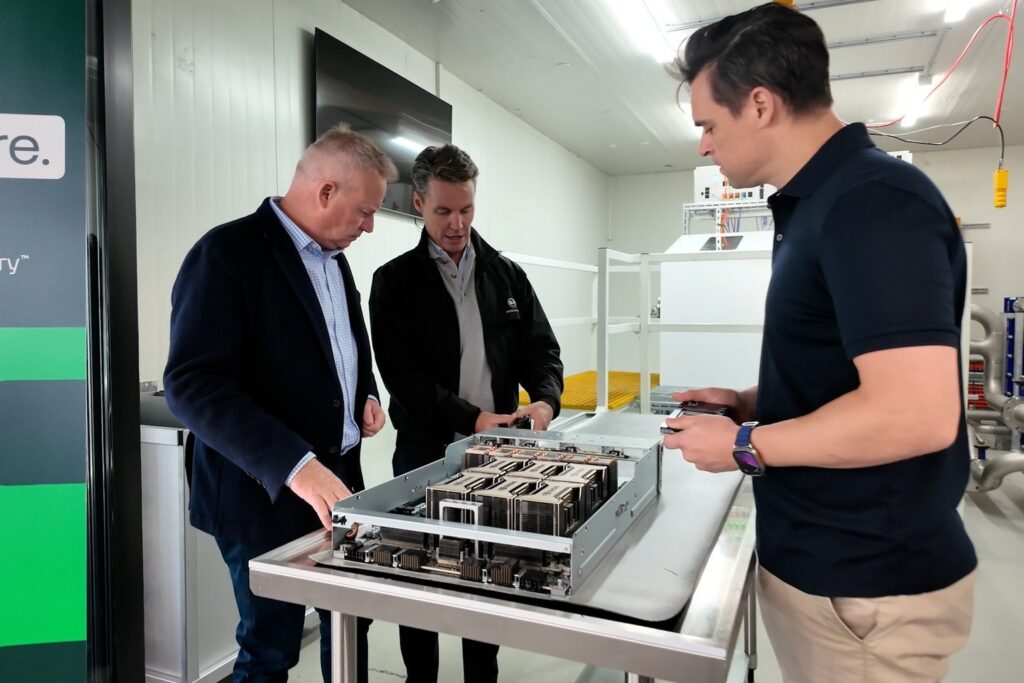
A private tech company, Firmus Technologies, has announced plans to construct one of Australia’s largest artificial intelligence data centers in Launceston, Tasmania. The $2.1 billion investment aims to leverage Tasmania’s renewable energy resources to outpace global competitors. The initial phase, set to open in early 2026, will house 16,000 specialized computer processors and create approximately 100 jobs.
The facility is designed to support a range of applications, from ChatGPT-style services to gaming platforms. Premier Jeremy Rockliff hailed the investment as the beginning of a “world-first AI factory zone,” emphasizing the potential to transform Tasmania’s clean energy into economic opportunity. While specific government commitments remain unclear, the Liberal party is expected to facilitate the project’s growth.
Harnessing Renewable Energy for AI
Firmus Technologies co-CEO Tim Rosenfield highlighted Tasmania’s renewable energy as a key factor in the decision. “AI tools like ChatGPT run on tokens that are currently heavy on energy and emissions,” Rosenfield explained. “Producing these AI tokens in Tasmania will create a new type of green AI token, clean and powered by renewables, enabling AI to scale sustainably.”
The center will employ advanced liquid-cooling technology, which uses 60% less energy than traditional data centers and reduces construction costs by half. This innovative approach aligns with Firmus’s commitment to sustainability and cost efficiency.
Strategic Development and Economic Impact
Construction has already commenced on the Launceston campus, with the first 45 megawatts slated to go live early next year. The facility is expected to expand to 90 megawatts by the end of 2026, with potential plans for a 300-megawatt second stage if the initial phase proves successful.
Co-CEO Oliver Curtis described the project as “purpose-built to power, train, and inference artificial intelligences” rather than a conventional data center. “With Tasmania’s clean energy and our AI factory platform, we believe this will be the most cost-effective, sustainable AI facility in the world,” Curtis stated.
Political and Community Reactions
Labor leader Dean Winter expressed enthusiasm about the development, calling it a “really exciting opportunity for the north.” He noted, “It is extremely exciting what they’re proposing there, and I’ve been lucky enough to have a good look at Firmus and what they’ve been doing.”
However, Winter also raised concerns about the region’s power supply, referencing recent statements from Boyer about insufficient power availability for transitioning from coal to electricity. This highlights potential challenges in balancing energy demands with sustainable growth.
Implications for the Future
The announcement comes at a time when the global tech industry is increasingly focused on sustainability. Firmus Technologies’ investment in Tasmania could set a precedent for other companies looking to integrate renewable energy into their operations. The project not only promises economic benefits for the region but also positions Tasmania as a leader in sustainable tech development.
As the world continues to grapple with climate change, initiatives like this underscore the importance of innovative solutions that marry technological advancement with environmental responsibility. The success of Firmus’s AI factory could pave the way for similar projects worldwide, demonstrating the viability of green technology in powering the future.
Looking ahead, the collaboration between government and private sectors will be crucial in addressing infrastructure challenges and ensuring the long-term success of such ambitious projects. The development of Firmus Technologies’ AI factory in Tasmania marks a significant step forward in the pursuit of sustainable technological innovation.






